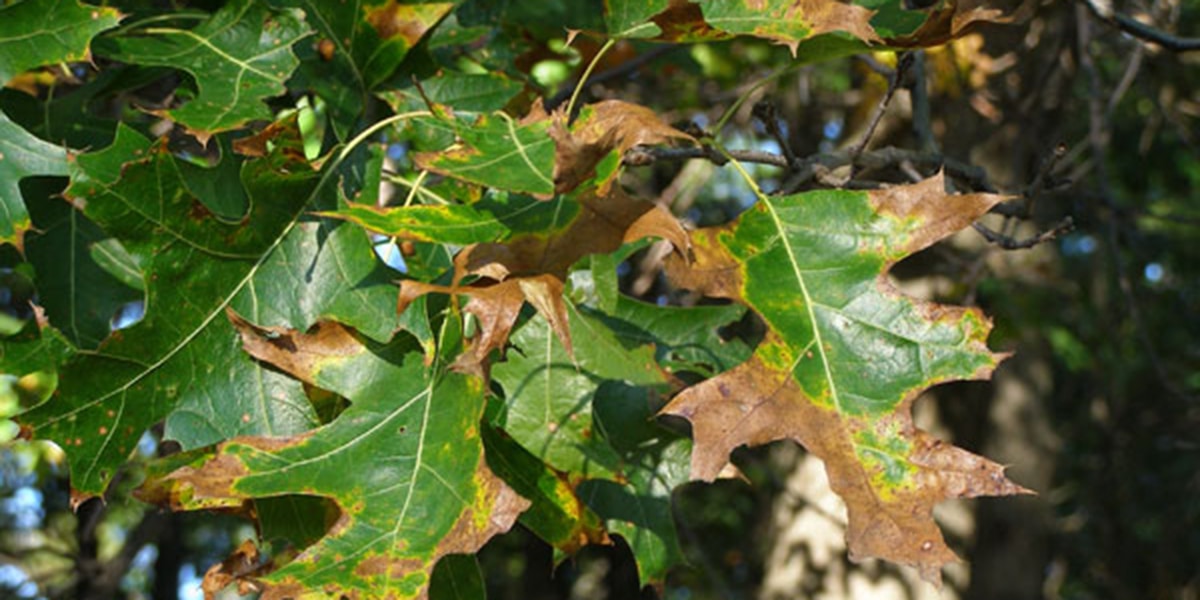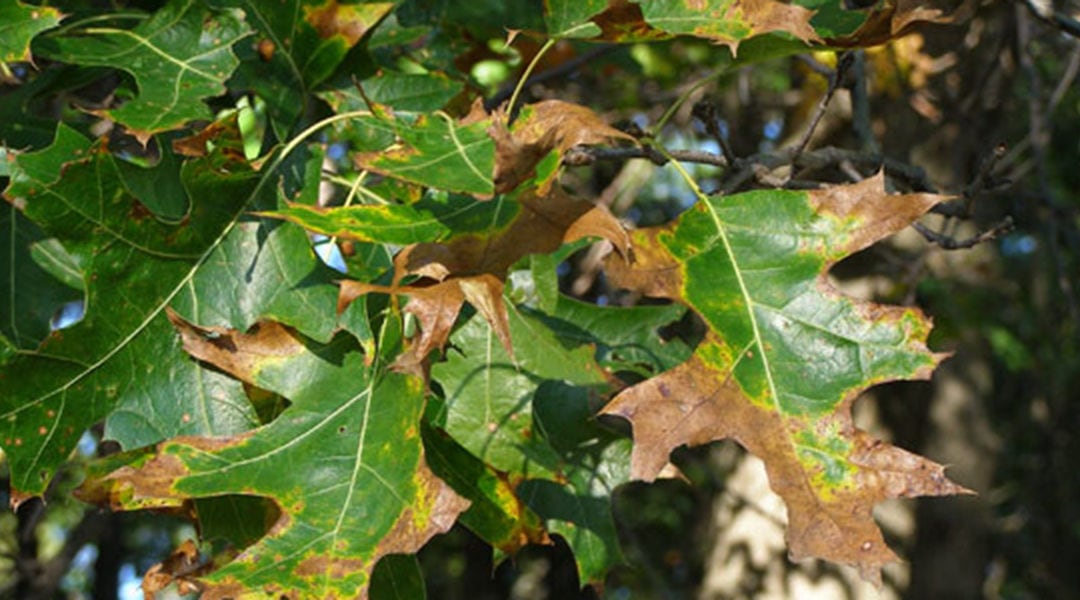
Keeping an eye out for common oak tree diseases goes a long way in ensuring your oak tree’s survival. Tending to diseased trees early can prevent them from perishing or infecting the surrounding healthy trees.
Below we list the most common oak tree diseases Louisville’s tree service experts can help you address.
1. Oak Leaf Blister
The oak leaf blister refers to a fungus-based disease that affects black and red oaks more severely. While minor afflictions prove harder to notice, severe infections often cause the tree’s leaves to develop patches of light green blisters.
2. Armillaria Root Rot
Armillaria root rot is a severe disease impacting all oak species.
You can identify this disease by looking for clusters of honey-colored mushrooms that often develop in late summer. Sometimes, infected trees also produce browning needles, yellowing leaves, white fungal growth, and black fungal strands at the trunk’s base.
In extreme cases, removing the entire tree offers the only solution.
3. Oak Wilt
Oak wilt, transmitted through fungal spores and one of the various dark beetles, severely disrupts your tree’s growth.
The disease affects white and red oak trees differently.
Red Oak Wilt
Oak wilt manifests more severely and rapidly in red oaks. Initially, the leaves will begin to wilt and drop. Afterward, the fungus will produce a sticky layer that splits the bark as it expands.
Due to the severity, red oaks rarely survive oak wilt, perishing only a few months after infection.
White Oak Wilt
Unlike red oaks, white oaks prove more resistant to oak wilt, easily living for years after infection. Furthermore, you can manage the disease in various ways, from fungicides to regulatory prevention measures.
4. Powdery Mildew
Next on our list of the most common oak tree diseases is powdery mildew. You can identify this disease by the white dust on the leaves of infected trees. Other symptoms include abnormal growth, leaf curling, and leaf discoloration.
5. Mistletoe
Mistletoe, a parasitic pest, wraps around healthy trees, stealing their water and mineral supplies. Fortunately, mistletoe will not kill the tree primarily because it can produce specific food sources on its own.
However, you will still need to monitor it.
6. Bacterial Leaf Scorch
With symptoms often appearing after a summer drought, bacterial leaf scorch is a disease that causes reddening or yellowing of your oak tree, followed by browning and dropping of leaves.
Bacterial leaf scorch causes the gradual decline of your tree’s health, eventually resulting in its death.
7. Galls
Galls refer to swellings or growths caused by insects like wasps. In most cases, galls simply make your oak tree less appealing. However, the disease could cause severe damage if left unchecked, resulting in your tree’s death.
For instance, the growths can cause severe leaf deformities and premature leaf drops. By doing so, they affect your tree’s photosynthesis capabilities, impacting its ability to create the nutrients it needs to survive.
Unfortunately, you will find no way to remove galls. However, you can manage the disease by pruning affected twigs before holes have a chance to develop.
Professional Tree Care Services
Early and aggressive treatment offers the best way to combat common oak tree diseases. At New Leaf Tree Service, we have a team of highly trained arborists ready to provide you with the treatments your tree needs to survive.
Have you noticed worrying symptoms on your oak tree? Do you need help dealing with one of these common oak tree diseases?
Feel free to browse our other resources on tree safety and learn the dangers of planting a tree too close to your house. Reach out to us today at (502) 419-9899 and get the help you need.

